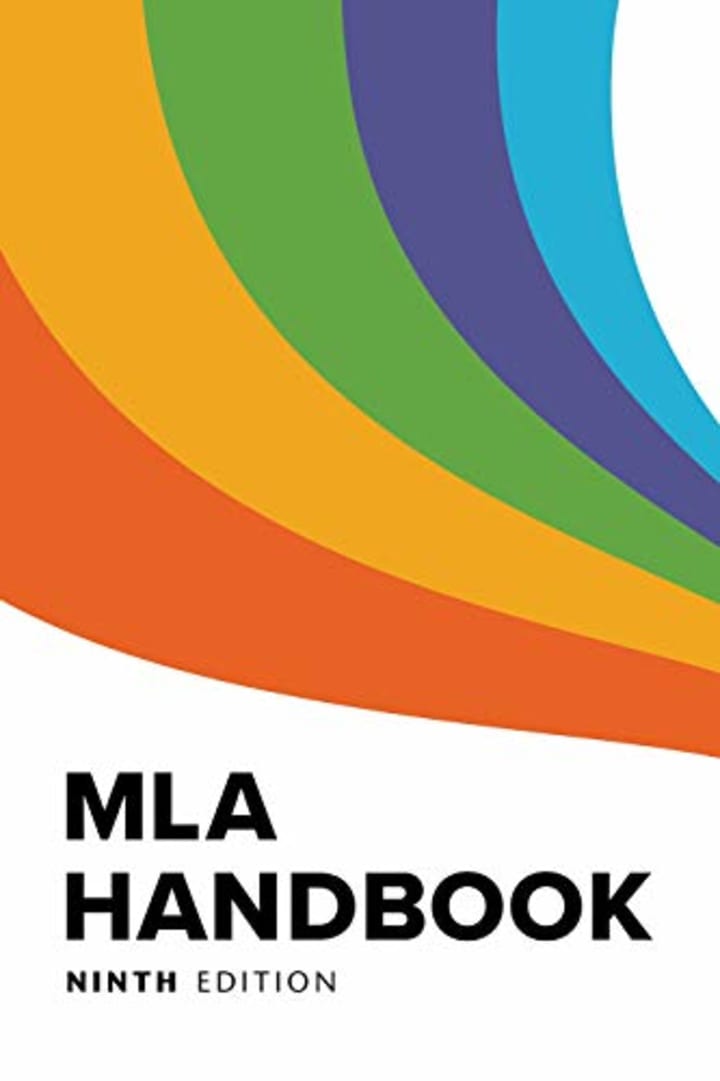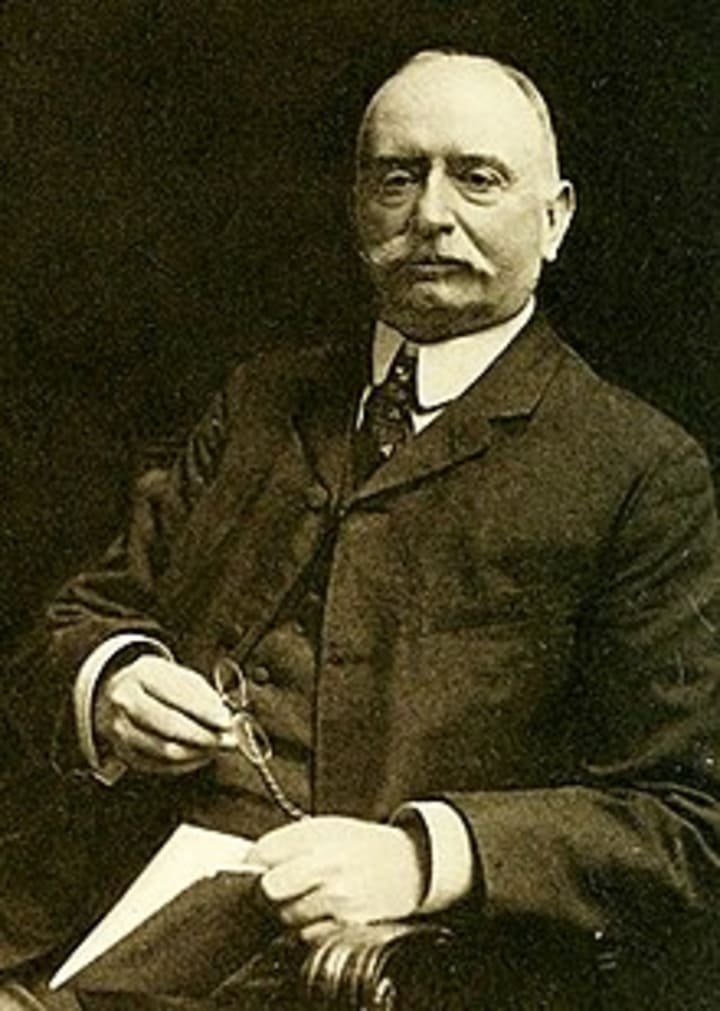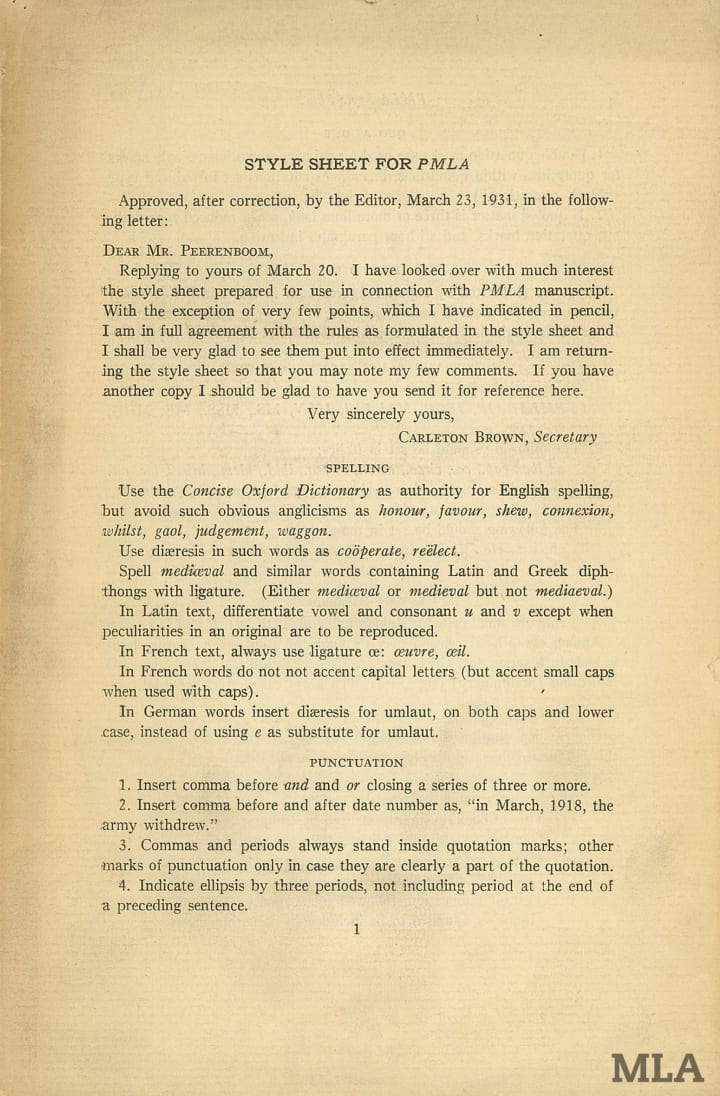Modern Language Association(MLA)
MLA's role in academia

MLA Handbook (OFFICIAL) 9th Edition

The Modern Language Association (MLA) is a professional organization in the United States that was founded in 1883. It is the largest scholarly association in the humanities, with over 25,000 members from around the world. The MLA is dedicated to the study and teaching of language and literature, including English, foreign languages, and cultural studies.
One of the primary goals of the MLA is to promote research and scholarship in language and literature. The organization sponsors several scholarly journals, including the flagship journal PMLA (Publications of the Modern Language Association), which publishes articles and reviews on a wide range of topics in the humanities. The MLA also sponsors an annual convention, where scholars and researchers come together to present papers and discuss their work.

The MLA has also been involved in the development of academic standards for the study and teaching of language and literature. The organization has published several editions of the MLA Handbook, which provides guidelines for research papers, including citation styles and formatting guidelines. The MLA Handbook is widely used by students and scholars in the humanities.
In addition to promoting research and scholarship, the MLA is also committed to improving the teaching of language and literature. The organization offers professional development opportunities for teachers, including workshops and conferences. The MLA has also developed a set of guidelines for teaching literature, which are designed to help teachers create engaging and effective courses for their students.

MLA Handbook (OFFICIAL) 9th Edition
The MLA is also committed to promoting diversity and inclusion in the study and teaching of language and literature. The organization has created several initiatives to promote diversity in the field, including the Committee on the Literatures of People of Color in the United States and Canada and the Committee on Disability Issues in the Profession. The MLA has also established guidelines for inclusive and respectful language, which are intended to help scholars and teachers create a welcoming and inclusive environment for all students and colleagues.
Another important aspect of the MLA's work is advocacy for the humanities. The organization is committed to promoting the value of the humanities in society, and to advocating for funding and support for humanities research and teaching. The MLA has been involved in several advocacy campaigns, including the "I Love My Librarian" campaign, which recognizes the important role that librarians play in supporting research and scholarship.
The MLA is also involved in international outreach and collaboration. The organization has established several partnerships with foreign scholarly organizations, and sponsors international conferences and workshops. The MLA has also established a Center for Digital Research and Scholarship, which provides resources and support for digital humanities research.
Overall, the Modern Language Association plays a vital role in promoting research, scholarship, and teaching in language and literature. Through its publications, conferences, and advocacy work, the MLA helps to shape the direction of the field and to promote the value of the humanities in society. As the field continues to evolve in response to new technologies and social changes, the MLA will remain a key player in shaping the future of language and literature studies.

In recent years, the MLA has also focused on addressing the challenges facing the academic job market in language and literature. The organization has established several task forces and working groups to examine issues such as contingency in the profession, diversity and inclusion in hiring practices, and the future of the tenure-track model. The MLA has also provided resources and support for job seekers, including job listings and professional development opportunities.
In addition to its work in language and literature, the MLA has also been involved in broader conversations about the role of the humanities in society. The organization has advocated for the importance of the humanities in developing critical thinking, communication, and cultural understanding skills, and has emphasized the ways in which the humanities contribute to social and political engagement. The MLA has also been involved in public debates around issues such as academic freedom and the impact of technology on education.
As the MLA continues to evolve and adapt to changing social, technological, and political contexts, its commitment to promoting research, scholarship, and teaching in language and literature remains steadfast. The organization's ongoing efforts to address issues such as diversity, contingency, and advocacy demonstrate its dedication to creating a more equitable and inclusive academic landscape. With its wide-ranging resources and network of scholars, teachers, and researchers, the MLA will continue to play a key role in shaping the future of language and literature studies for years to come.
About the Creator
Cik Uann98
killed marketer with expertise in affiliate marketing, digital marketing, and social media marketing. With over five years of experience in the field, I have a proven track record of increasing brand awareness .






Comments
There are no comments for this story
Be the first to respond and start the conversation.